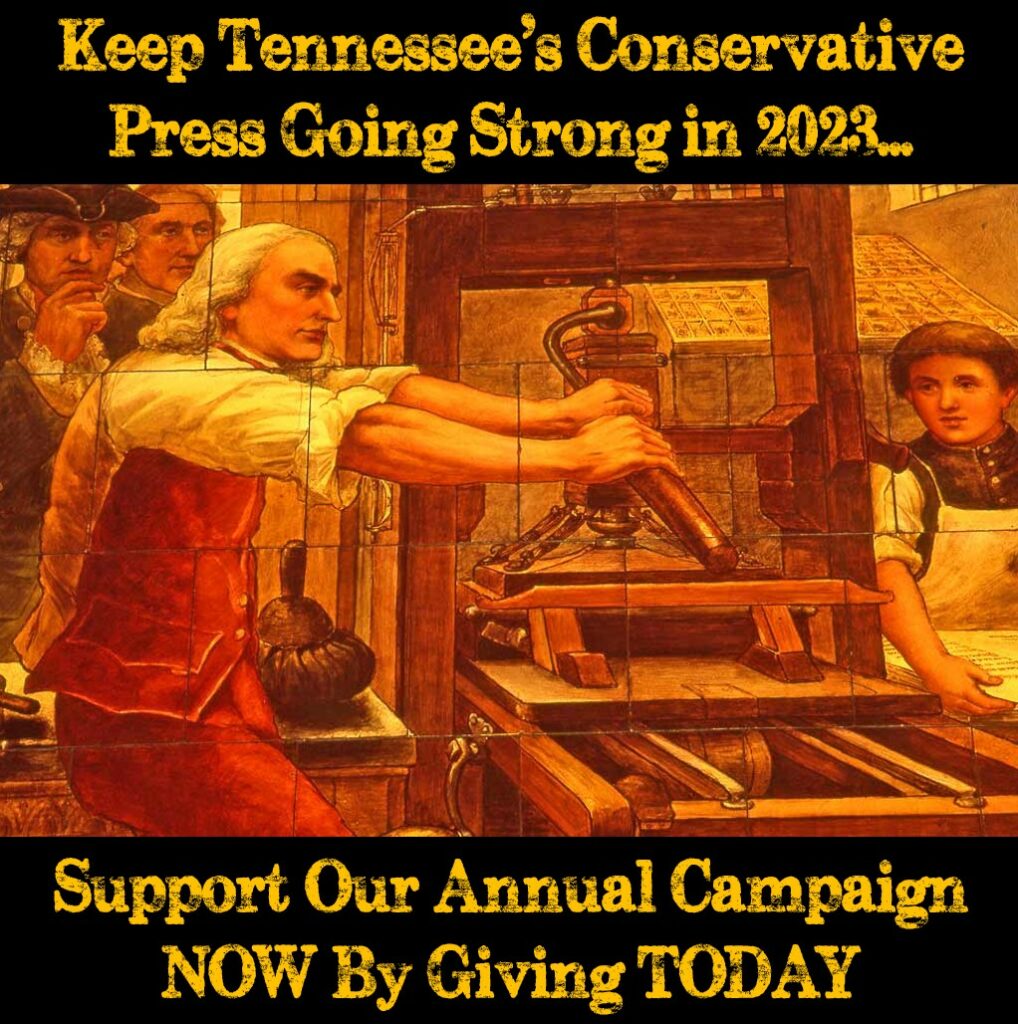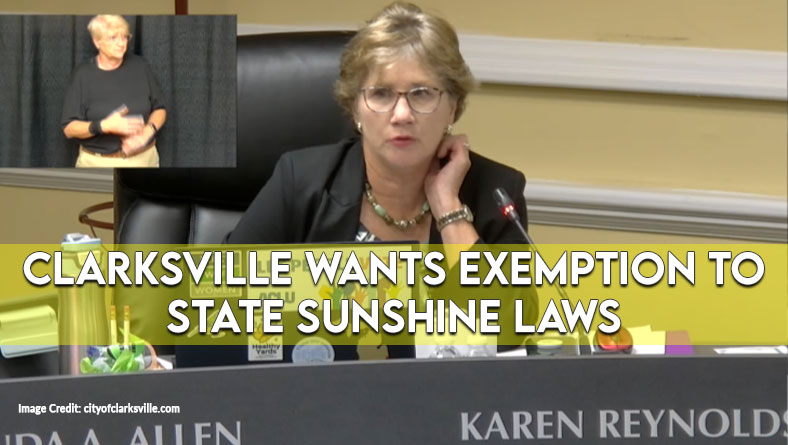Image: Council member Karen Reynolds is in favor of seeking exemption to Tennessee’s transparency laws. Image Credit: cityofclarksville.com
The Tennessee Conservative Staff –
Some elected officials in one Tennessee city want permission to hold private meetings to secretly talk about public business.
On September 7, the Clarksville City Council voted to ask the state legislature to exempt the council from “Sunshine Laws”. These laws ban elected government officials from holding closed door meetings to discuss public issues.
After very little discussion, the motion was passed with an 8-4 vote.

According to Sunshine laws, any communications, conversations, decisions, and meetings that deal with public business should be open and the public should be given proper prior notice.
Council member Karen Reynolds spoke in favor of seeking the permissions, saying that the laws regarding transparency are “stifling.”
“I think that the Sunshine Law, as written, stifles communication and collaboration,” Reynolds said.
According to Tennessee law, “All meetings of any governing body are declared to be public meetings open to the public at all times, except as provided by the Constitution of Tennessee.”
Additionally, the law defines a governing body as “members of any public body which consists of two (2) or more members, with the authority to make decisions for or recommendations to a public body on policy or administration.”
The law, however, does state that a “chance meeting” of two or more members of a public body is not considered an open meeting as long as it is not used to “decide or deliberate public business” as a means of getting around Sunshine Laws.
Council member Wallace Redd thinks the laws should be applied equally to all legislative bodies in the state.
“I’d like to ask the state legislature to allow local governments to fall under the same Sunshine Laws and rules that they follow,” said Redd. “They make the laws—we should have the same thing.”

There has been recent criticism of the state legislature because they are not made to follow the same Open Meetings laws as local governing bodies. The Court of Appeals in Mayhew v. Wilder decided in 2001 that the Open Meetings Act does not apply to the General Assembly because the legislature was created by the Constitution and was not the product of a legislative action.
While floor sessions in the legislature and committee hearings are open for the public to attend, many other groups of lawmakers hold private meetings regularly. Both Republican and Democratic caucuses have been inconsistent over the years with whether or not they would allow the public to attend meetings.
In the past, the House has also been criticized for holding what some call “pre-meetings,” where there are gatherings between lawmakers outside of hearing rooms – with little public notice – to communicate with lobbyists and other stakeholders to review legislation. The House has stopped this practice amid the growing criticism.
When council member Brian Zacharias asked why Redd was not asking the state to follow the same laws that they were required to follow, Redd said he did not care which rules the state adopted – as long as state and local bodies were following the same rules.
“They are imposing rules on us that they don’t have, so we should be allowed to have the same rules that they have,” Redd stated.
The council’s vote was part of their legislative package, so there will not be any immediate effect. Instead, the decision has been added to a list of issues that the city will lobby the legislature on when they are back in session in January.
However, the vote and the comments made by some council members give the public a glimpse into how some elected officials view the law that requires them to conduct all public business openly.

The director of the Free Speech Center at Middle Tennessee State University, Ken Paulson, said the move was counter to the principles of democracy.
“From the very birth of this country, the first generations of Americans recognize that it was important to keep an eye on people in power,” Paulson stated. “Over time, local and state governments have recognized an affirmative duty to be as transparent as possible — and that is certainly consistent with the core principles this nation was founded upon.
“The truth is: democracy isn’t always convenient. But most local legislators and council people understand that showing the public how they conduct themselves and how they spend tax-payers money is for the public good.”
Paulson says he does not know of any other city trying to remove its requirement to abide by state laws to provide transparency to the public and will likely only open up even greater problems with other elected bodies.
“I’ve never heard of this kind of request to be exempt,” he said. “If somehow this were actually to pass for the Clarksville City Council, wait for the following legislative session where every municipality in the state will ask for exemption from their least favorite state regulations.”




2 Responses
If any politician needs to make policy behind closed doors then they should not be trusted. I know it happens daily but that does not make it right. Public debate is the foundation of our country. If your elected official can’t articulate his /her views in a policy debate then they should find another job.
Anything of God is open and above board. Secret collusion AIN’T!!